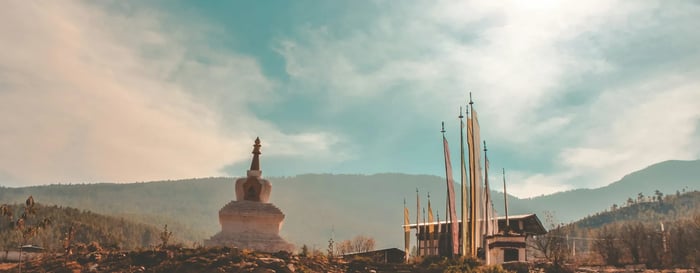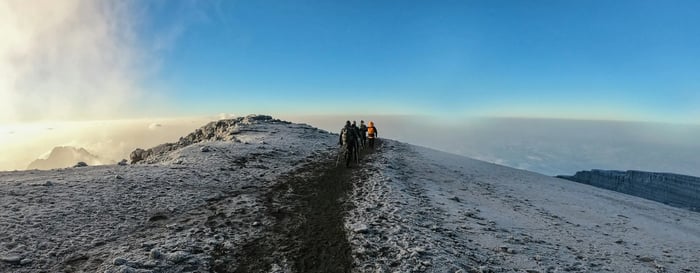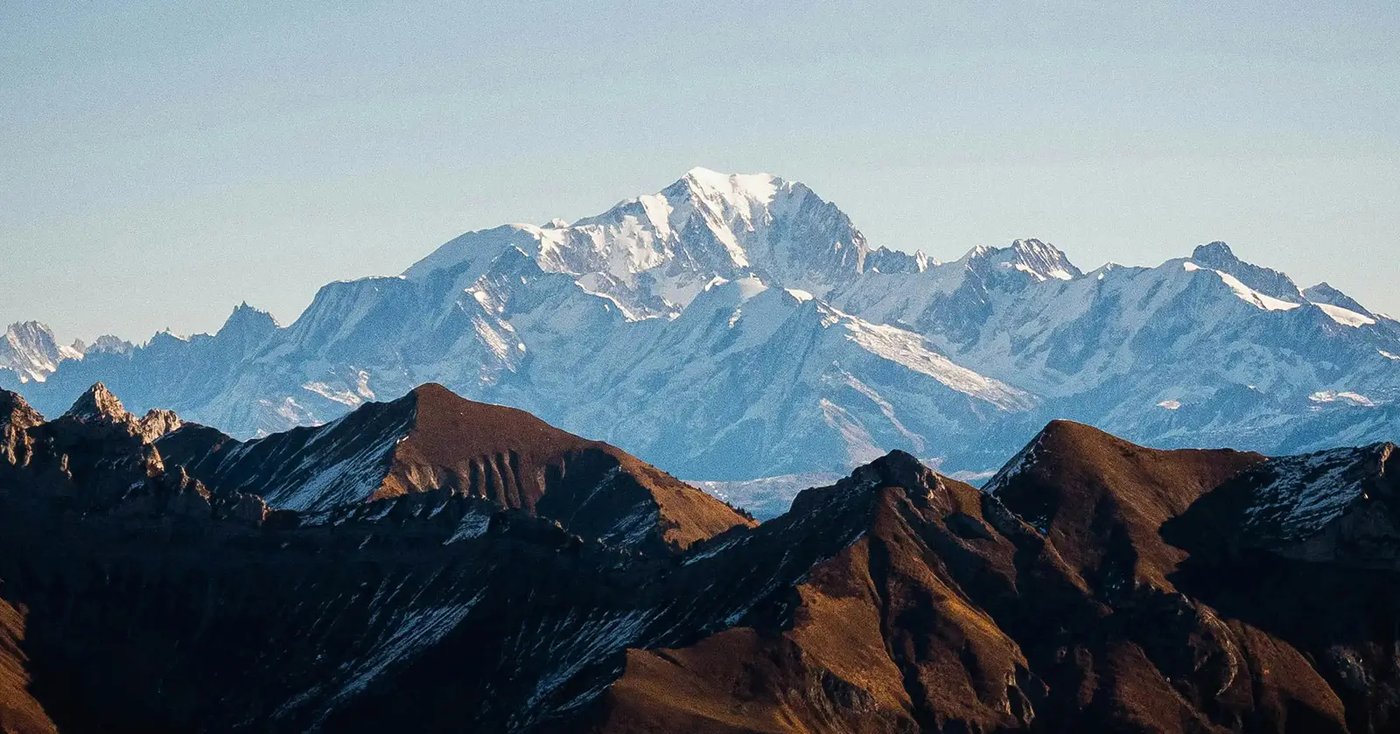On the wild untouched isle of Siberut in the Mentawai Islands is a land that has remained unchanged for centuries. The men go barefoot into the forest to hunt wild boar, the women search between the rocks and reeds for shellfish, and the children play in the river. But the modern world is constantly edging closer to this land of hunter-gatherers and shaman.
The Women On A Mission (WOAM) team, which has cycled across the Danakil Depression in Ethiopia and walked across the Lut Desert in Iran, decided to trek deep into the Indonesian jungle to see a way of life that could soon be lost forever. Along the way, the team aimed to raise $100,000 SGD for the Women for Women International charity. “Like any woman on a mission trip we wanted it to be physically and mentally challenging. We wanted to experience a different way of life and it was one of the most exciting trips we have ever done,” said financier and WOAM partner Milena Nikolova.
To reach the Mentawai village, the women had to take two flights, a boat trip across the Indian Ocean, and then a motorbike ride along deep mud tracks to the edge of the rainforest. They then began their trek into the jungle, which took them knee-deep through rivers, over bamboo bridges, and through undergrowth that needed to be hacked with a machete to be able to let them pass.
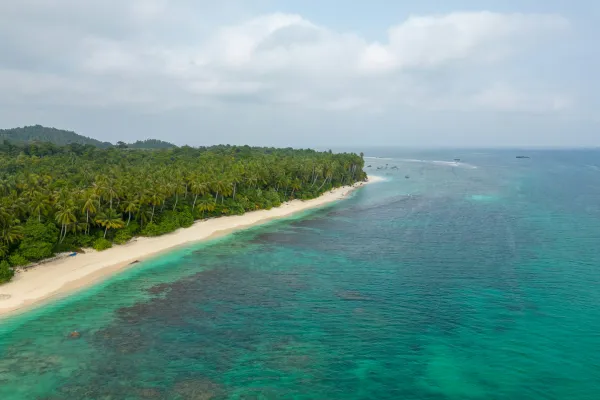
But the intrepid team was in safe hands as their tattooed, barefoot, loin cloth-wearing guide was as familiar with this jungle as he was with the inked patterns on his skin. Shaman Aman Ipai was born and raised in this last piece of wilderness. He too understood how the rest of the world was encroaching on his homeland as before he took this group of adventurers into the jungle, he had greeted them wearing shorts and a t-shirt at the port, which he had stuffed into his small backpack as soon as he entered his homeland of the jungle.
Nikolova said that there are lots of misconceptions about the shaman way of life: “When I talk about shamans people think of drinking strong substances, but they are in fact very spiritual people. Before they slaughter a pig or cut a tree, they talk to it and express their gratitude to it.”UNESCO had been working with Aman Ipai and other families to prepare them for a future that would look different from the one its clans had enjoyed for hundreds of years. In a cashless society, the Mentawai traded farm animals, shamanic blessings, or clothes made from the fibres of tree bark, but now as their children would be going to school in the town they needed to be able to earn money and Aman Ipai and his fellow clan members would achieve this by offering an eco-tourism experience in their homeland.
While Aman Ipai was happy for the women to stay with his family in their home, the journey to get to his village was no different from how it had been for centuries. The only difference was that while Aman Ipai walked barefoot, the women wore boots.
The women slept in Aman Ipai’s home on stilts that was thatched with palm leaves and surrounded by its own bamboo picket fence. Like a tropical hunting lodge, decorated with monkey skulls, the longhouse, constantly received visitors from other uma (longhouses). With a terrace to relax on and a kitchen stove that was permanently being tended to, the women quickly felt at home in the welcoming atmosphere.
“After some of our previous adventures in the deserts of Ethiopia and Iran, it felt very luxurious to have a bath in the river. You’re part of nature. It’s very refreshing for the soul,” said Nikolova. At night the women would sleep under the palm tree roof and during the day they would search rockpools for shellfish with the women, learn how to bake sago in banana leaves, and join the men when they went into the jungle to hunt with bows and arrows made from bamboo.
The WOAM team, which included an entrepreneur, chemical engineer, and photographer, were able to see if they could learn to live in the wild. After trekking through the rainforest to a mountain peak, the shaman invited the women to sit and embrace nature. “We saw it as a meditation exercise, but for them, it was something they do naturally. They made an offering at the top of the peak and thanked the forest for what it was going to give them. You could see how connected they were with the forest,” said Nikolova. While the clan’s hunt was unsuccessful, the hunters showed the women how they can still feed themselves by turning to the riches of the forest. “They harvested wild mangos by throwing small rocks into the tree to knock the fruit from the branches,” said Nikolova. “They also showed us how we could eat sago worms.”
From here they trekked further into the jungle to visit another family. The family, who had just lost their adult son were in mourning. They were told he had suffered a heart attack. The women were worried about intruding, but the family encouraged them to stay. “At first we felt uncomfortable about this,” said Nikolova. “But we found they were very open - someone was crying on one side of the longhouse, while on the other side of the longhouse women were cooking and children laughing – life seemed to go on despite the grief.”
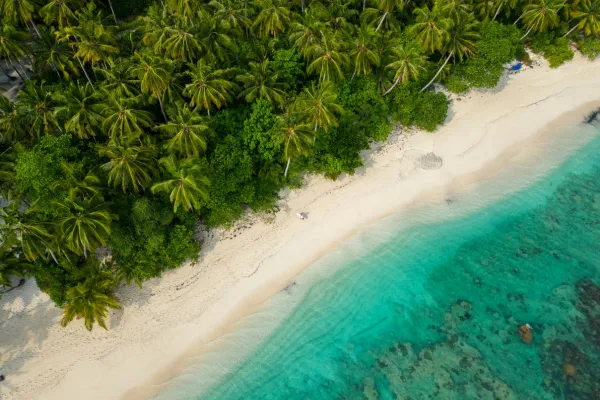
We could hear their shamanic chanting until 3 am and then the village would wake at 5 am to the sounds of the roosters. While life looked idyllic, it was also tough. “They would take their water from the nearby river, but when the water levels dropped, as animals would also drink from this water there was also the risk of disease,” said Nikolova.
While the modern world was getting closer, the government, charities, and NGOs know how important it is to protect the ways of the Mentawai people. At one time they had to choose one of five religions, none of these being their spiritual belief, however, this is no longer the case. A charity called Suku Mentawai also teaches young people of the island of Siberut about the Mentawi culture, forest medicine, house building and hunter-gathering skills.
“For me the whole trip was spiritually enriching,” said Nikolova.
Photography: Andrea Galkova
Hiking and Glamping in Bhutan
Paro, Thimphu & Punakha Bhutan
- Explore the scenic Punakha Valley with your private guide
- Try archery and then indulge in a traditional Bhutanese hot stone bath
- Discover numerous monasteries in Paro such as Zurig Dzong and Rinpung Dzong
- Hike from Sang Choekor Buddhist College to Yak
- Visit The Tiger’s Nest monastery, one of Bhutan’s most famous landmarks perched precariously on a cliff, 900 meters off of the ground
Luxury Private Kilimanjaro
Tanzania Africa Kilimanjaro & Arusha National Parks
-
Climb to the summit of Mount Kilimanjaro, the highest peak in Africa
-
Spot African wildlife, including elephants, buffalos and black and white Colobus monkeys
-
Marvel at Kilimanjaro’s explosive past at the Lava Tower
-
Scale the imposing Great Barranco Wall
-
Experience sunrise over Africa as you reach Uhuru Peak
Timeless Bali & Untamed Sumba
- Discover a quieter side of western Bali
- Explore the ancient temple of Pura Tanah Lot
- Venture to a less-explored island of Indonesia
- Witness the traditional Marapu culture of Sumba
- Swim, surf, hike, bike and relax by the Indian Ocean
